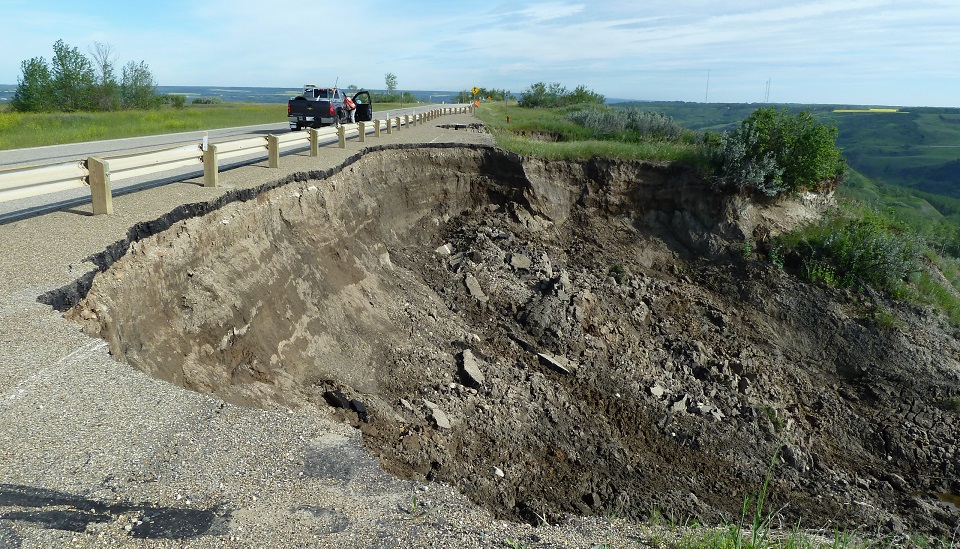The human and economic cost of earthwork failures, such as the collapse of slopes and dams, is significant. Landslides caused by earthquakes and heavy rainfall kill tens of thousands of people worldwide annually. They also damage infrastructure and cause severe disruption to access of critical lifelines such as water supply and transport links.
An ageing infrastructure, intensive use, and environmental extremes caused by climate change all threaten to increase the scale and frequency of such disasters.
But despite the devasting consequences of earthwork failures our understanding of why and when they occur is limited, and there is currently no capability anywhere in the world to undertake simulations that would provide this information.
The University’s simulator will revolutionise national and international research capacity in this field. Large-scale slopes will be constructed on a tilting table and subjected to cycles of controlled wetting and drying to simulate seasonal weather conditions. The table will be tilted and held at specified angles during this process, creating slope deterioration. Continuous monitoring, followed by rotating the slope to failure, will provide unique information on the impact of different weather patterns and extremes.
The tilting table will also provide an opportunity to investigate the performance of slope remediation interventions to an extent that has not been possible before, which will allow optimisation of slope repair and design.
Ultimately the simulator will enable engineers to design, deliver and maintain affordable and safe infrastructure that is resilient to the increasing environmental risks caused by climate change.
Professor Neil Dixon and Dr Alister Smith from Loughborough’s School of Architecture, Building and Civil Engineering will be leading the simulator project and the associated research programme, supported by a team of colleagues.
Speaking about the simulator Professor Dixon said: “This exceptional facility will transform research capability in the geotechnical engineering sector. It will enable us to work with our academic and stakeholder partners across the UK to investigate and understand the causes of earthwork slope failures, optimise remediation strategies and inform the design of new infrastructure.
“I am incredibly grateful for the Wolfson Foundation’s generous support with this project, which will have life-saving benefits.”
Rachel Third, Director of Philanthropy, said: “I am very grateful for the Wolfson Foundation’s continuing and generous support of Loughborough University and the strong relationship that we have built over many years. The Wolfson Foundation has made a significant difference to the research and teaching activities undertaken across the campus and we look forward to keeping them updated on the impact of this grant. I would like to thank the Foundation on behalf of everyone involved.”
Paul Ramsbottom, Chief Executive of the Wolfson Foundation (an independent grant-making charity), said: “We are delighted to continue our long partnership with Loughborough University. This is one of the most intriguing and important grants awarded this funding round. It is based around brilliant science, and will be one of the only facilities of its kind – not just in the UK but beyond.”
Professor Dixon and Dr Smith are internationally acclaimed for their work in this area. They are the creators of the world’s first commercial acoustic emission slope monitoring system, developed with a global leading geotechnical instrumentation company, and have conducted extensive research into slope failures.
